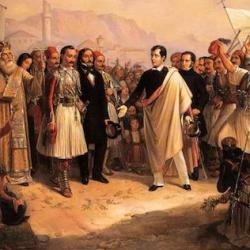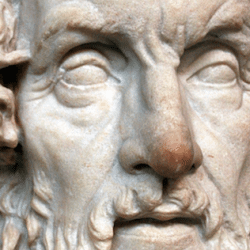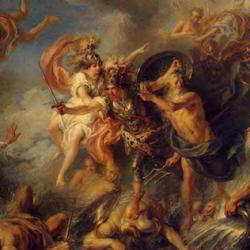According to Plutarch’s Fortunes of Alexander (329b-d), Alexander wisely rejected the advice of Aristotle, which was “to treat the Greeks as if he were their leader, and other peoples as if he were their master; to have regard for the Greeks as for friends and kindred, but to conduct himself toward other peoples as though they were plants or animals.” Aristotle’s advice would have been disastrous: “to do so would have been to cumber his leadership with numerous battles and banishments and festering seditions.”
Besides, Alexander was convinced that he had a universal mission: “as he believed that he came as a heaven-sent governor to all, and as a mediator for the whole world, those whom he could not persuade to unite with him, he conquered by force of arms, and he brought together into one body all men everywhere, uniting and mixing in one great loving-cup, as it were, men’s lives, their characters, their marriages, their very habits of life. He bade them all consider as their fatherland the whole inhabited earth, as their stronghold and protection his camp, as akin to them all good men, and as foreigners only the wicked; they should not distinguish between Grecian and foreigner by Grecian cloak and targe, or scimitar and jacket; but the distinguishing mark of the Grecian should be seen in virtue, and that of the foreigner in iniquity; clothing and food, marriage and manner of life they should regard as common to all, being blended into one by ties of blood and children.”
Where did Alexander get that vision of a cosmopolitan future?















